Volvo EC40 vs VW ID.4 – erot ja hinnat vertailussa
Kustannukset ja kulutus
Taloudellisuudessa on mielenkiintoisia eroja näiden kahden mallin välillä.
VW ID.4 on hinnassa selvästi havaittava edullisempi – sen lähtöhinta on 40300 €, kun taas Volvo EC40 maksaa 54400 €. Ero on noin 14055 €.
Sähkönkulutuksessa etu on VW ID.4:lla: se kuluttaa 15.60 kWh /100 km ja on vähäinen energiatehokkaampi kuin Volvo EC40, jonka kulutus on 16.20 kWh. Ero on noin 0.60 kWh.
Toimintamatkassa Volvo EC40 suoriutuu melkein huomaamaton paremmin: se yltää jopa 584 km:een, noin 15 km enemmän kuin VW ID.4.
Moottori ja suorituskyky
Teho, vääntömomentti ja kiihtyvyys ovat autoharrastajien klassisia mittareita – ja erot tulevat tässä hyvin esiin.
Moottoritehossa Volvo EC40 on ilmeinen etulyöntiasemassa – 442 hv verrattuna 340 hv:een. Ero on noin 102 hv hv.
Kiihdytyksessä 0–100 km/h Volvo EC40 on hieman nopeampi – se saavuttaa 100 km/h ajassa 4.60 s, kun taas VW ID.4 tarvitsee 5.40 s. Ero on noin 0.80 s sekuntia.
Huippunopeudessa on edellä – se yltää :een, kun taas saavuttaa . Ero on noin .
Myös vääntömomentissa näkyy ero: VW ID.4 vetää tuskin havaittava voimakkaammin, 679 Nm verrattuna 670 Nm:een. Eroa on noin 9 Nm.
Tila ja käytännöllisyys
Tehon ohella arjessa ratkaisevat mukavuus ja käytännöllisyys. Tässä selviää, kumpi auto on monipuolisempi ja tilavampi.
Istuimet: tarjoaa enemmän istumapaikkoja – vs. .
Omapainossa VW ID.4 on kevyt kevyempi – 1975 kg verrattuna 2065 kg:een. Painoero on noin 90 kg.
Tavaratilan koossa VW ID.4 tarjoaa erottuva enemmän – 543 L verrattuna 404 L:een. Ero on noin 139 L.
Maksimikantavuudessa VW ID.4 pärjää selvästi havaittava paremmin – jopa 1575 L, noin 379 L enemmän kuin Volvo EC40.
Kantavuudessa VW ID.4 on erottuva parempi – 551 kg verrattuna 435 kg:een. Ero on noin 116 kg.
Kuka vie voiton?
Kokonaisuudessaan VW ID.4 on johtaa selvästi kokonaisuutena ja nappaa näin DriveDuel Champion -tittelin.
Se vakuuttaa tasapainoisemmalla kokonaisuudellaan ja on käytännöllisempi kumppani arjessa.
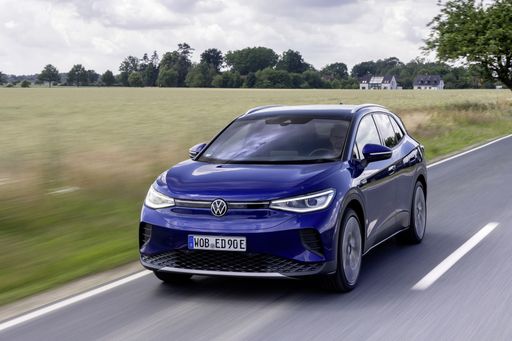 @ Volkswagen AG / VW Media
@ Volkswagen AG / VW Media
VW ID.4
Kustannukset ja kulutus
Näytä yksityiskohtainen analyysi
Moottori ja suorituskyky
Näytä yksityiskohtainen analyysi
Mitat ja kori
Näytä yksityiskohtainen analyysi
Volvo EC40
Volvo EC40 tuo skandinaavista pelkistettyä eleganssia sähköiseen pakettiin, ja ajossa se tuntuu rauhallisen vakaalta ja ennakoivalta — ei huutavalla näyttävyydellä, mutta kerää katseet vaivattomasti. Sisältä se tarjoaa laadukkaan tunnelman ja fiksuja arjen ratkaisuja, joten se on mainio valinta ostajalle joka haluaa turvallisuutta, hillittyä tyyliä ja ripauksen luksusta ilman turhaa prameilua.
Tiedot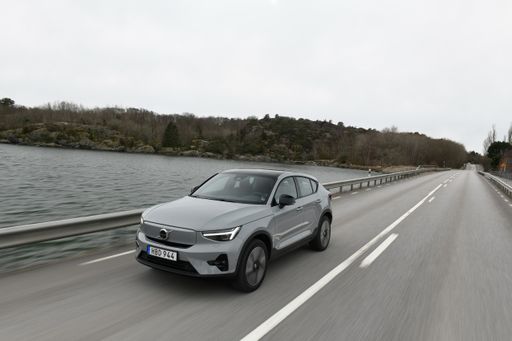 @ Volvo Cars
@ Volvo Cars
VW ID.4
Volkswagen ID.4 on hillitty ja käytännöllinen sähköauto, joka ei yritä olla urheilija vaan arjen luotettava kumppani. Avarat ja käyttäjäystävälliset sisätilat sekä vaivaton ajettavuus tekevät siitä helpoksi valinnan sähköiseen elämään ilman turhaa dramatiikkaa.
Tiedot @ Volkswagen AG / VW Media
@ Volkswagen AG / VW Media
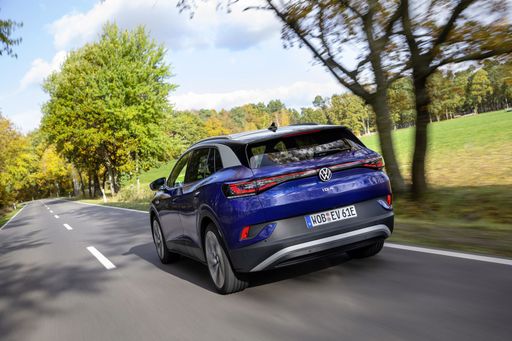 @ Volkswagen AG / VW Media
@ Volkswagen AG / VW Media
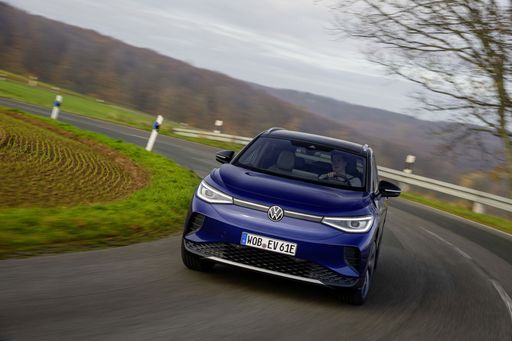 @ Volkswagen AG / VW Media
@ Volkswagen AG / VW Media
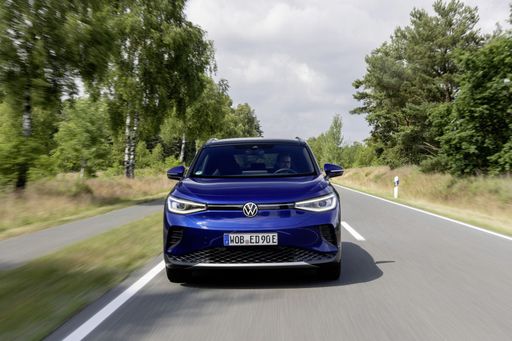 @ Volkswagen AG / VW Media
@ Volkswagen AG / VW Media
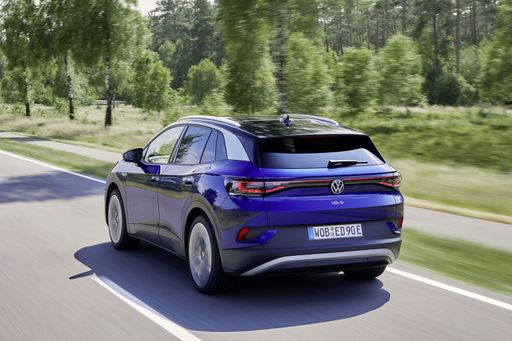 @ Volkswagen AG / VW Media
@ Volkswagen AG / VW Media
 @ Volkswagen AG / VW Media
@ Volkswagen AG / VW Media
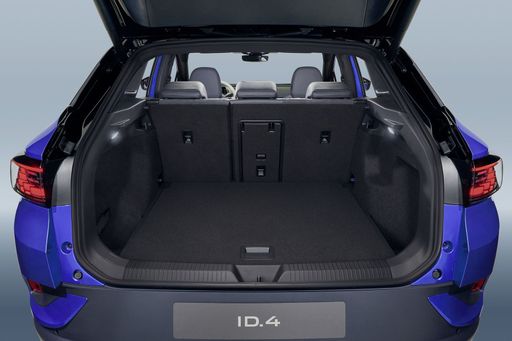 @ Volkswagen AG / VW Media
@ Volkswagen AG / VW Media
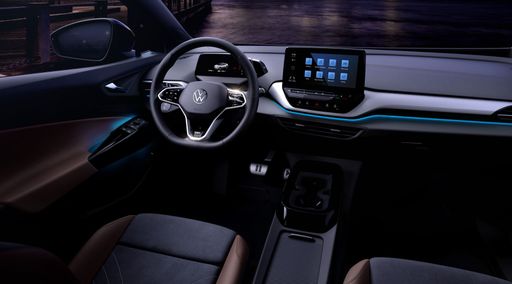 @ Volkswagen AG / VW Media
@ Volkswagen AG / VW Media
 @ Volvo Cars
@ Volvo Cars
|
 @ Volkswagen AG / VW Media
@ Volkswagen AG / VW Media
|
|
|
|
Kustannukset ja kulutus |
|
|---|---|
|
Hinta
54400 - 68800 €
|
Hinta
40300 - 55000 €
|
|
Kulutus L/100km
-
|
Kulutus L/100km
-
|
|
Kulutus kWh/100km
16.2 - 17.3 kWh
|
Kulutus kWh/100km
15.6 - 17 kWh
|
|
Sähköinen toimintasäde
488 - 584 km
|
Sähköinen toimintasäde
356 - 569 km
|
|
Akun kapasiteetti
67 - 79 kWh
|
Akun kapasiteetti
52 - 77 kWh
|
|
CO2
0 g/km
|
CO2
0 g/km
|
|
Polttoainesäiliön tilavuus
-
|
Polttoainesäiliön tilavuus
-
|
Mitat ja kori |
|
|---|---|
|
Kori
SUV
|
Kori
SUV
|
|
Istuimet
5
|
Istuimet
5
|
|
Ovet
5
|
Ovet
5
|
|
Omamassa
2065 - 2185 kg
|
Omamassa
1975 - 2248 kg
|
|
Tavaratila
404 L
|
Tavaratila
543 L
|
|
Pituus
4440 mm
|
Pituus
4582 - 4584 mm
|
|
Leveys
1873 mm
|
Leveys
1852 mm
|
|
Korkeus
1591 mm
|
Korkeus
1619 - 1634 mm
|
|
Maksimi tavaratila
1196 L
|
Maksimi tavaratila
1575 L
|
|
Kantavuus
395 - 435 kg
|
Kantavuus
511 - 551 kg
|
Moottori ja suorituskyky |
|
|---|---|
|
Moottorityyppi
Sähkö
|
Moottorityyppi
Sähkö
|
|
Vaihteisto
Automaatti
|
Vaihteisto
Automaatti
|
|
Vaihteiston tyyppi
Alennusvaihteisto
|
Vaihteiston tyyppi
Alennusvaihteisto
|
|
Vetotapa
Takaveto, Neliveto
|
Vetotapa
Takaveto, Neliveto
|
|
Teho hv
238 - 442 hv
|
Teho hv
170 - 340 hv
|
|
Kiihtyvyys 0-100 km/h
4.6 - 7.3 s
|
Kiihtyvyys 0-100 km/h
5.4 - 9 s
|
|
Huippunopeus
180 km/h
|
Huippunopeus
160 - 180 km/h
|
|
Vääntömomentti
420 - 670 Nm
|
Vääntömomentti
310 - 679 Nm
|
|
Sylinterien lukumäärä
-
|
Sylinterien lukumäärä
-
|
|
Teho kW
175 - 325 kW
|
Teho kW
125 - 250 kW
|
|
Iskutilavuus
-
|
Iskutilavuus
-
|
Yleiset |
|
|---|---|
|
Mallivuosi
2024
|
Mallivuosi
2023 - 2025
|
|
CO2-tehokkuusluokka
A
|
CO2-tehokkuusluokka
A
|
|
Merkki
Volvo
|
Merkki
VW
|
Mitä vetotapavaihtoehtoja Volvo EC40 tarjoaa?
Saatavilla olevat vaihtoehdot: Takaveto tai Neliveto.
Näytetyt hinnat ja tiedot ovat arvioita, jotka perustuvat Saksan listahintoihin, ja voivat vaihdella maittain. Nämä tiedot eivät ole oikeudellisesti sitovia.
